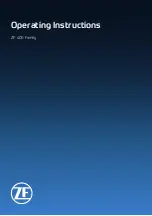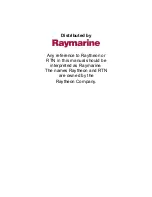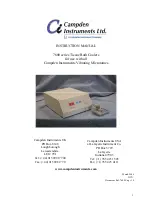
SyxthSense Ltd
Online Store:
www.syxthsense.com
Copyright
©
2005 SyxthSense Ltd – 09/2005
Enquiries: T:
0870 20 80 100
F:
0870 20 80 200
PS
SW4.10
– 3/6
Fax Option
The fax option allows to wire the telephone interface on the same telephone line on which is plugged
a fax device or any other device capable of an automatic answer to the incoming calls. The fax
option, when enabled, operates in a way that the telephone interface answers the phone call before
the fax attempts to do the same thing. The interface will then be able to answer the incoming call in
two different ways: either after the set number of rings or after two consequent calls each only one
ring long.
Let’s suppose that the fax machine is answering after 3 rings: the interface will then be configured for
answering after a greater number of rings and the fax option will be enabled. In this way all normal
incoming calls will be correctly received by the fax machine.
On the other hand in case the user wants to communicate with the telephone interface without
interference with the fax machine, he will make a phone call and then, after only one ring, hang up
the line. After about 10 seconds (but within 30 seconds) he will make a new call: this time the
interface will answer the incoming call after the first ring, thus anticipating the fax machine.
With the sequence
*80#
the fax option is disabled, meanwhile with the sequence
*81#
the option is
enabled. If the command has been correctly composed the interface replies with a dual-tone as a
positive feedback.
Factory setting for this option is for the fax option disabled.
Setting the Secret Code
The secret code needed to access the interface can be modified by the user in any moment and is
stored and held in the device even in case of absence of power.
A new secret code (4 numeric digits) can be set by composing on the keyboard the sequence
*9# “new code” # “new code” #.
The code must therefore composed twice in order to avoid errors
in the sequence input procedure.
As an example, if the user wants to set as new code the number
5678
the sequence to be composed
is:
*9# 5678 # 5678 #.
If the command sequence was correct the interface gives a successful feedback with a dual-tone
sound and stores in its memory the new code; in case of failure instead it gives a single-tone sound
and the old code remains not modified.
End of Call Command
When the sequence
*0#
is composed the communication is terminated. Anyway the interface
provides an automatic end-of-call in case no command is composed in 30 seconds: in this situation a
short sound warns the user when 10 seconds and 5 seconds are left. In no case the overall duration
of the phone call can be longer than 3 minutes: after this time the call is automatically terminated.
Before the call is terminated a short music jingle is played. During the communication with the
interface, a short sound (beep) is issued every time is manually requested a state change in the
inputs or in the outputs.
Summary of Operation
Configuration
Command
Function
*01
0
1
Selects CH1 output
Turns selected output off
Turns selected output on
*02
0
1
Selects CH2 output
Turns selected output off
Turns selected output on
*11
Requests IN1 input state
*12
Requests IN2 input state
*0#
Terminates communication
*7n#
Sets number of rings before answering
*80#
*81#
Disables fax option
Enables fax option
*9# n # n #
Modifies the secret access code
*
Cancels input data and waits for new
command
























